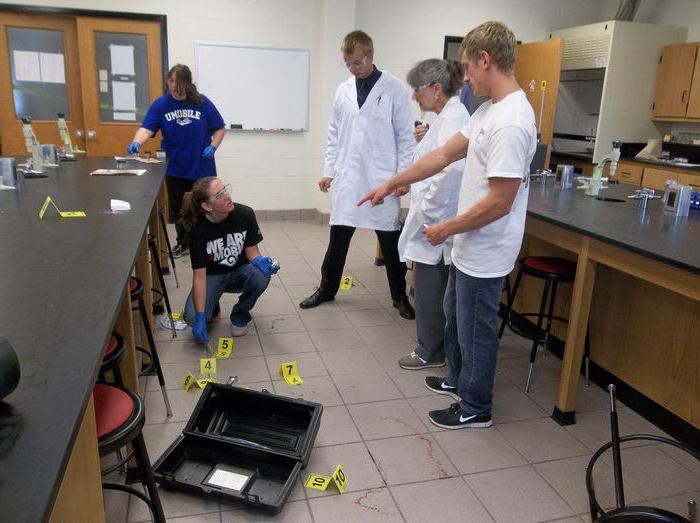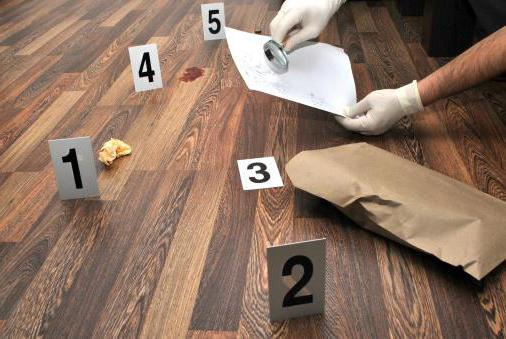Evidence gathering represents one of the stages of the process of proof. It includes the detection, seizure, as well as the recording of information. AT Art. 86 Code of Criminal Procedure 3 categories of participants in the proceedings are identified, having the ability to use different methods of collecting evidence in the case. Consider the norm in more detail. 
First group of subjects
In h. 1 86 articles it is established that the collection of evidence in the framework of criminal proceedings is carried out by the investigator, prosecutor, court, interrogator. The indicated persons carry out investigative and other procedural actions, enshrined in the CPC and aimed at detecting, seizing, recording information.
It should be noted that the prosecutor does not have the right to take part in the preliminary investigation. Accordingly, evidence is collected by this entity only at the judicial stages of the proceedings. The actions of the prosecutor are reduced to participation in the proceedings in the status of the state prosecutor, reclamation and representation official documents based on 21 articles of the Code (part 4), as well as additional materials to the cassation instance.
Powers of the court
The court examines everything during the trial, what is the evidence. At the same time, materials and information can be both justifying and incriminating. Given this, the court runs the risk of taking an indictment or acquittal, depending on the amount of evidence.
Meanwhile, the court does not belong to the prosecuting authorities, is not a party to the defense or the prosecution. It is called upon to create appropriate conditions for the parties to exercise their procedural obligations and rights.
Given the foregoing, it is necessary to restrictively interpret the powers of the court, enshrined Art. 86 Code of Criminal Procedure. The actions of the instance are subsidiary (additional) in relation to the parties to the proceedings.
Methods of collecting materials and information
In Art. 86 Code of Criminal Procedure it is established that the prosecutor, investigator, court, interrogating officer may carry out investigative and other procedural actions. The latter, in particular, include sending requests, requirements, instructions, binding on organizations, institutions, enterprises, citizens and employees. Other procedural actions, unlike the investigative ones, are to a lesser extent provided with the possibility of applying coercive measures. 
The legislation provides for a pecuniary penalty for failure to comply with procedural obligations. However, it is established only for direct participants in the production. It does not apply to persons executing requests, instructions and requirements.
Despite the fact that the court is not mentioned among the entities that have the right to send requests, etc., this possibility is provided for in other norms of the Code.
For example, in accordance with Article 115 of the Code of Criminal Procedure (Part 7), the management of banks (other financial institutions) in case of seizure of money and other valuables belonging to the accused / suspect are required to provide information about this property at the request of the court.
When interpreting the norms, it is necessary to take into account that the legislator is based on the principle of the fullness of the power of the court. In accordance with Article 6 of the Federal Law on the Judicial System, decisions of federal, regional courts and justices of the peace that have entered into force, their instructions, requests, requests, orders, challenges, other appeals are binding on all territorial and state authorities, public associations, employees, other citizens and legal entities throughout the country.
Second group of persons
She installed Part 2 Art. 86 Code of Criminal Procedure. The second group includes:
- civil defendant / plaintiff;
- accused / suspect;
- victim;
- representatives of these persons.
These entities may only collect and provide written official documents, as well as items for familiarizing with the materials of production. Information is transmitted to the investigator, court, interrogating officer. They, in turn, are required to include materials in the evidence base. 
Defender Powers
In a court this person usually acts on the side of the accused / suspect. In 3 parts 86 of the Code of Criminal Procedure, the powers of this entity are provided in the field of evidence collection. Normally, the ways to carry out these actions are established:
- receipt of documents, items, etc .;
- a survey of subjects (including specialists) by their consent;
- requesting materials from territorial / state authorities, public associations, legal entities, which, in turn, are required to provide the requested information or their copies.
On the basis of the principle of equality of parties to the proceedings, the materials collected by the lawyer should become evidence, as well as the information obtained by the interrogator / investigator.
Meanwhile, within the meaning of the provisions of Article 159 of the Code of Criminal Procedure (Part 2), in the framework of the preliminary investigation, these employees may not satisfy the defense lawyer’s request to attach the materials if they consider that the circumstances the lawyer insists on proving do not matter for the case. Therefore before how to gather evidence, the defense side needs to study the results of the investigation in order to build competent tactics.
Nuances
Upon completion of the preliminary investigation and the provision of materials to the defense for review, the investigator must find out which specialists, witnesses, experts must be summoned to the court for interrogation and confirmation of the defense's arguments. The indictment must contain evidence on which the lawyer relies. 
A list of persons to be summoned by the defense must be attached to the conclusion. Good lawyer indicates not only their F.I.O., but also the place of residence / stay. It is worth noting that the prosecutor or investigator cannot arbitrarily supplement or reduce this list. This rule indicates that the formation of the list is not within the competence of these employees. Creating a list is the exclusive right of the defense. A good lawyer must realize it fully.
The investigator cannot refuse to defend the inclusion in the list of information about any evidence or witnesses. Moreover, the court is obliged to satisfy the lawyer's request for summoning and interrogation in a meeting of specialists or witnesses who appeared on his initiative. Accordingly, the defense counsel can obtain a re-interrogation of persons who were denied a conversation at the preliminary stage.
Derivative Evidence
As additional documents, the lawyer may provide the court (interrogator / investigator) with written explanations that he received during the interview. This fact does not exclude, but involves the subsequent interrogation of these entities as witnesses. This is because written explanations are considered derivative evidence. Taking into account the principle of direct study of production materials, if available, it is necessary to strive for the discovery of initial evidence. They, in turn, will be the oral explanations of the persons who gave the testimony. 
Illegal actions of courts and investigators
In a number of cases, courts and investigative officers refuse to attach written explanations to the case file. Explaining their position, these entities refer to part 3 Art. 86 Code of Criminal Procedure. The provision of the norm refers only to a survey by an attorney of citizens with their consent. On receipt of written explanations from the same entities in Art. 86 Code of Criminal Procedure nothing is said. This position is unlawful.
First of all, such a refusal does not take into account the fact that if the law provides for any way to obtain evidence, then this method also involves an appropriate form of information.
Secondly, on the basis of the provisions of Article 53 of the Code of Criminal Procedure, the defense lawyer may use any means and means of upholding a position not prohibited by the Code. This means that written explanations are quite acceptable to attach to the case, since there is no prohibition on this in the legislation.
If we talk about other evidence (documents, items) that were obtained by the lawyer and provided at the hearing for consideration, then, within the meaning of legal norms, they are also subject to inclusion in the case file by the investigator / interrogator and transferred to the court along with evidence from the prosecution. 
Validity of materials and information
The legislation establishes a number of requirements to which the materials collected by the parties, in particular the defense attorney, must comply.
First of all, the primary source that can be verified must be reliably known.
Evidence can only be collected by a lawyer who is allowed to participate in the proceedings.
Written explanations may be attached to the case if received with the consent of the respondents. Persons should be warned that the information they give will be presented in court as evidence.
Limitations for a lawyer
The defender is forbidden to interview citizens previously questioned by the interrogating officer / investigator in order to persuade them to refuse or change their testimonies.
A lawyer may not commit covert actions that qualify as operational-search, or use their results. This is due to the fact that the production of such activities is within the competence of specialized units of the relevant state bodies. Meanwhile, a lawyer can use the services of private detectives. 
Receiving and requesting information
It is necessary to differentiate these two actions. Obtaining evidence, items, information involves direct access to the source. At the same time, the defender receives the data carrier without any request or creates it independently by drawing up diagrams, video / photography, etc.
An attorney’s request is used to obtain evidence. Some references, characteristics, other documents are held by specific persons responsible for their execution. There is no public access to such materials.
A lawyer's request cannot be considered a formalized document. However, when compiling it, it is necessary to be guided by a number of general and special rules. In order for the request not to be ignored, it is advisable to indicate in it references to regulatory acts, which are the basis for taking actions to recover evidence and at the same time impose an obligation on the addressee to provide them. It will also be useful to remind about the time allotted for the execution of requests, responsibility for the unlawful refusal to provide the necessary data, as well as for sending false information.
Often, lawyers have to literally play a “chess combination” to get the right information. However, regardless of the complexity of the case, it must be remembered that all actions must be performed within the framework of the law. The refusal of persons possessing this or that information can always be challenged.